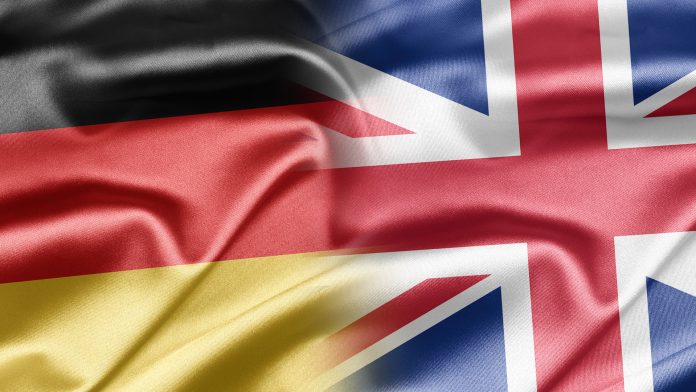A new partnership signed today will turbocharge science and research links between the UK and Germany.
The new agreement to boost science and research ties and plans for a joint group of science and research experts are part of shared measures announced by the UK and Germany today.
The UK Science and Technology Secretary Michelle Donelan and German Federal Minister of Education and Research Bettina Stark-Watzinger will announce these latest plans in London today.
They will then sign a Joint Declaration of Intent, committing both countries to broadening and deepening their science and research links.
High ambitions for science and research development
Today’s meeting also brings together a unique forum featuring some of the leading lights from both countries’ science and research communities – including the Max-Planck Society, the Royal Society, Universities UK, and the Helmholtz Association – to share and agree on promising opportunities for R&D teamwork in areas ranging from quantum and AI to clean technology and research security.
Moving forward, the UK and German governments will establish a Strategic Working Group to ensure that these high ambitions are matched with concrete delivery plans.
UK Secretary of State Michelle Donelan explained: “Germany is the UK’s second-largest trading partner and a critical science and research partner through Horizon Europe and CERN.
“By supporting our brightest minds and leading institutions to work together, we will maximise the opportunities for them to create new jobs, build new businesses, and ultimately deliver a better quality of life for us all.”
German Federal Minister of Education and Research Bettina Stark-Watzinger added: “In the face of current challenges, it is all the more important that we move ahead together and prepare the ground for joint research solutions.
“The UK’s association to Horizon Europe is a major step in this direction. But we must also deepen bilateral cooperation.
“Our Joint Declaration of Intent provides the basis for good and close cooperation to strengthen science and research.”
Cementing UK and Germany research collaborations
The UK-Germany relationship on science and research is already deep and extensive.
Germany is the UK’s second-largest research collaborator globally after the US and its biggest research partner in Europe.
The two countries also play a key role together in some of the world’s foremost international scientific organisations, such as CERN, the European Laboratory for Particle Physics, and the European Space Agency.
To deepen links further, the UK government will also consider using funds available through the £337m International Science Partnerships Fund to enable UK researchers and innovators to collaborate with German partners on key projects.
Today also sees the award of the first two Global Innovation Fellowships, being delivered by the British Academy and the German Council on Foreign Relations (DGAP).
These one-year fellowships, to be hosted at DGAP’s headquarters in Berlin, will support collaborative work on the changing dynamics of global order. A second call for a further round of Global Innovation Fellowships between the Academy and DGAP will open later this year.
Together with Germany’s Alexander von Humboldt Foundation, the British Academy is also announcing that building on this June’s UK-Germany Knowledge Frontiers Symposium.
They will host three further symposia in the next three years that will bring together early career researchers from each country, boosting opportunities for joint work across humanities and social sciences.
Bilateral agreements like these, alongside the Horizon association, demonstrate the UK’s global ambitions to deepen collaboration with global leaders in science and research.
This agreement is a further demonstration of the UK’s ambition to cement its status as a science superpower through deepening collaboration on science and tech breakthroughs with like-minded nations like Germany.









